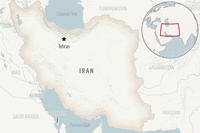Lawmakers and Navy leaders said U.S. allies around the globe will need to pick up a larger share of the deployments and forward presence needed to keep international sea lanes safe and open for trade.
Navy Secretary Ray Mabus cited the additional budget cuts associated with sequestration and additional combat responsibilities to include the fight against the Islamic State of Iraq and Syria (ISIS) as reasons the U.S. Navy will need additional assistance.
"We can't do it by ourselves and they have to carry their fair share of the burden," Mabus said before the Senate Armed Services Committee at a Navy budget hearing on Tuesday.
He praised the French for sending an aircraft carrier to help fight ISIS in the Arabian Gulf.
"One of the tangible things that is happening right now is the French aircraft carrier the Charles De Gaulle is in the Arabian Gulf conducting strikes against ISIS. That is the sort of partnership that not only we need -- but the world needs."
"We are going to have to insist on more of a contribution from our international partners. We keep the lanes open for them. Our friends in Europe, our NATO friends and our other friends are depending upon what you are talking about. We are going to have to collectively come up with a plan to convince our partners that it is in their interests too to make the financial sacrifice," Wicker said.
The U.S. navy has been the primary protector of the international shipping system for seven decades, Wicker said.
The Navy currently has more than 100 ships forward deployed in strategic locations around the globe. Navy ships secure shipping routes and works to counter piracy in waterways in the Middle East such as the Straits of Hormuz. In addition, the global deployment posture is focused on protecting commercial shipping in the Mediterranean and key parts of the Pacific such as the Straits of Malacca outside Singapore, Navy officials said.
Mabus has routinely said that nearly half of the world's population lives within 100 miles of the water and that 90-percent of global trade goes by sea. He also recently said that 95-percent of all voice and data travels under the ocean and that 38-million U.S. jobs are directly linked to sea-based international trade.
-- Kris Osborn can be reached at kris.osborn@military.com




























